It is true that the US needs to strike a balance between domestic priorities and its global commitments, but it cannot have meaningful engagement with the rest of the world, including ASEAN, if it is insular on economic issues. In other words, the US needs to realize that both ‘America First’ and globalisation – with some checks – can co-exist.
The Asia Pacific Economic Cooperation (APEC) Summit held in Bangkok (November 18-19, 2022) was important for a number of reasons. Firstly, a communique issued agreed upon by APEC members (APEC has a total of 21 members) stated: ‘Most members strongly condemned the war in Ukraine and stressed it is causing immense human suffering and exacerbating existing fragilities in the global economy’.
Secondly, five days after the meeting between US President Joe Biden and Chinese President Xi Jinping — on the sidelines of the G20 meeting at Bali (Indonesia) — US Vice President Kamla Harris and Chinese President Xi Jinping had a brief exchange on the sidelines of the APEC Summit. In a tweet, the US Vice President highlighted the need for maintaining ‘open lines of communication’ for managing the relationship between both countries. During the Biden-Xi meeting, it had been decided that both countries would cooperate on issues such as climate change and global health and that senior officials from both countries would resume engagement on issues of global importance. The US President during his meeting with Xi underscored the point that both countries needed to make concerted efforts for ensuring that ‘competition did not veer into conflict’.
China’s Foreign Ministry had described the meeting between Xi and Biden as ‘strategic and constructive’ and important in the context of the next stage of Washington-Beijing relations.
During the Biden-Xi meeting, it had been decided that both countries would cooperate on issues such as climate change and global health and that senior officials from both countries would resume engagement on issues of global importance.
The meeting between Biden and Xi as well as that between the US Vice President and Xi clearly send out a message, that Washington is keen to reduce tensions with Beijing. At the same time, the address by Biden and interactions with other ASEAN leaders, at the 40th and 41st Summit held at Phnom Penh, and Kamala Harris’ address at the APEC Summit sought to highlight the importance which the US attaches to the Indo-Pacific, and also the pivotal role of the ASEAN region in the US Indo-Pacific strategy. One of the reasons why many ASEAN countries have been sceptical regarding the USA’s role in Asia is that in spite of announcements, the US Indo-Pacific strategy does not have a clear economic vision. Even the IPEF (Indo-Pacific Economic Framework) which has seven ASEAN member states – Malaysia, Philippines, Vietnam, Brunei, Singapore, Thailand, and Indonesia – has been criticized by ASEAN members on the ground, that it does not provide any market access or tariff relief to countries that join IPEF. It would be pertinent to point out, that the withdrawal of the US from the Trans-Pacific Partnership (TPP), during the Trump Presidency was also not very assuring for the region. Singapore Prime Minister, Lee Hsien Loong while commenting on the US withdrawal from TPP had said: “I think this has put a dent in the degree to which people can be confident of America’s policies,”
Also read: ASEAN’s Foreign Policy: Managing The Great Power Politics
The US Vice President during her address at the APEC Summit emphasized the US commitment to the Indo-Pacific, while also saying that ‘there is no better partner for this region than the United States of America’. It would also be important to point out, that apart from Thailand, the Philippines was also part of her Asia visit.
The deterioration of ties between China and the US in recent years has also put ASEAN countries in an awkward spot, with many – most recently Indonesia – stating that they would not like to take sides in any geopolitical wrangling in Asia between the great powers.
The meetings between Biden and Xi, and Harris and Xi will be viewed positively – though a lot will depend upon the trajectory of Washington-Beijing ties over the next few months.
Also Read: The Small Shouldn’t Tumble in the Great Game of the Asia-Pacific
One of the slogans of Joe Biden after taking over as President was ‘America is back’, while the thrust of the US President’s interactions and speeches at the ASEAN Summit, and the G20 Summit followed by that of the US Vice President at the APEC Summit, signal that Washington does not want its ties with Beijing to deteriorate further, at the same time it does not want China to have a free run in Asia.
A lot will depend upon whether Washington is able to provide a coherent economic alternative, which also takes into account the economic interests and objectives of ASEAN countries. Here it would be important to point out, that US engagement with the rest of the world has been hampered by an insular economic narrative at home.
The US engagement with the rest of the world has been hampered by an insular economic narrative at home. It needs to realize that both ‘America First’ and globalization – with some checks – are not antithetical to each other.
It is true, that the US needs to strike a balance between domestic priorities and its global commitments, but it cannot have meaningful engagement with the rest of the world – including ASEAN – if it is insular on economic issues. In other words, the US needs to realize that both ‘America First’ and globalization – with some checks – are not antithetical to each other.
With less than two years to the next US Presidential election, it remains to be seen if Joe Biden is willing to make a course correction on the above. If he is unable to do so, then ‘America is back’ will only remain a mere slogan.
Disclaimer: The views expressed in this article are of the author solely. TheRise.co.in neither endorses nor is responsible for them. Reproducing this content without permission is prohibited.
About the author
Tridivesh Singh Maini is a New Delhi-based Policy Analyst. He is faculty member of OP Jindal Global University, Sonepat, Haryana.

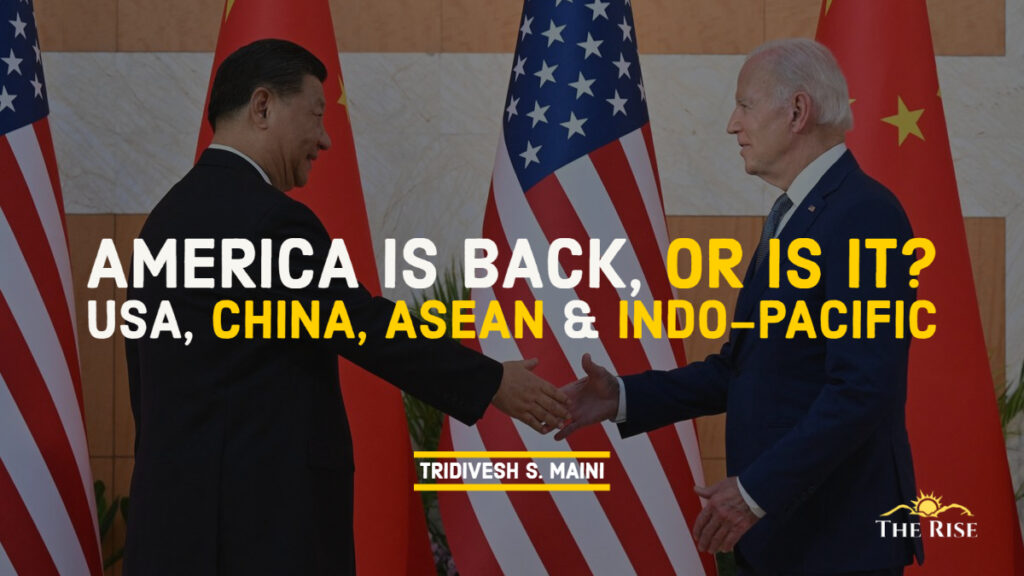

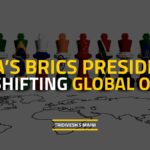
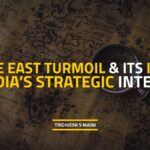
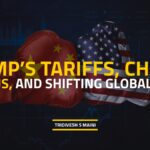




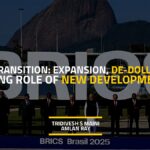
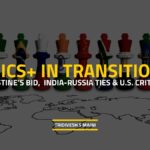

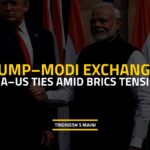
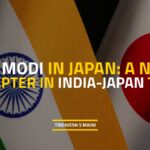

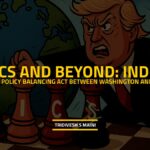

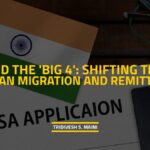
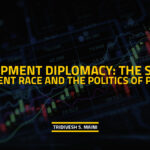


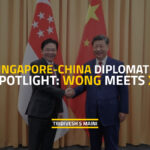


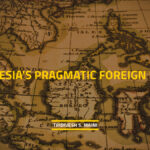

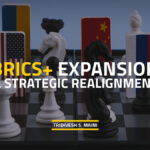



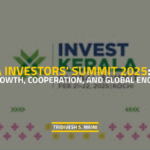

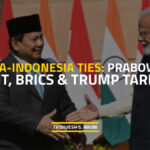

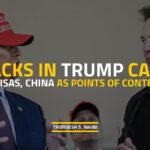

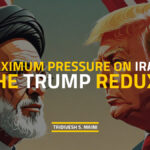

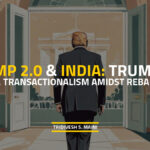


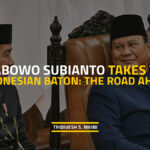

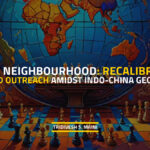

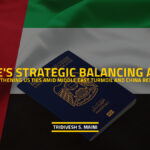
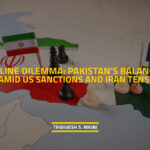
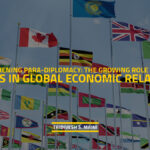
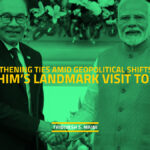
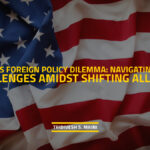
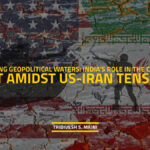
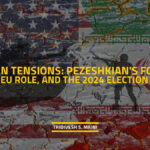


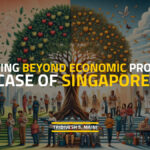
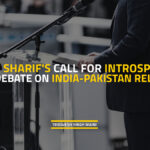



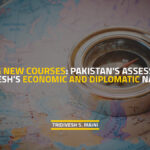

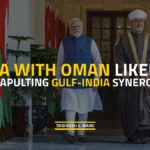
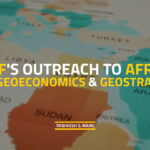

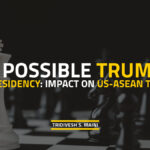

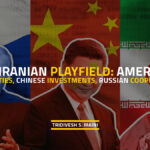

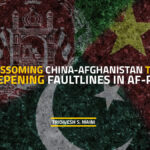
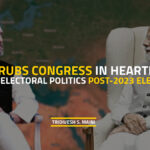
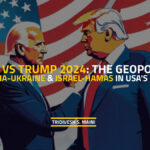
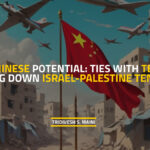

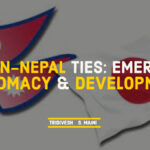

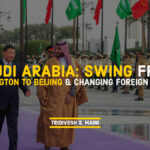

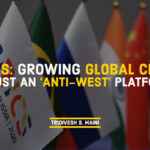
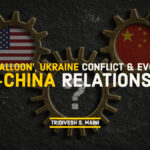
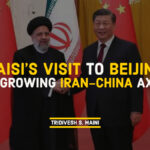
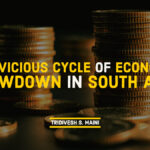



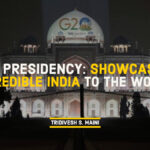

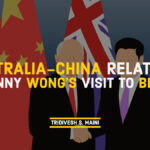
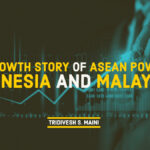

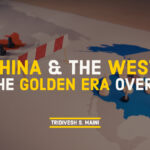
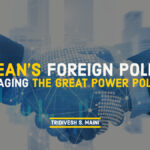
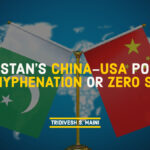
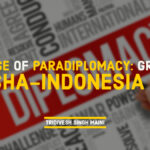

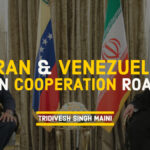

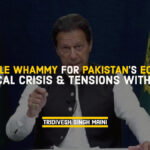
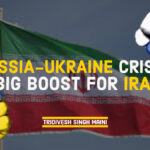
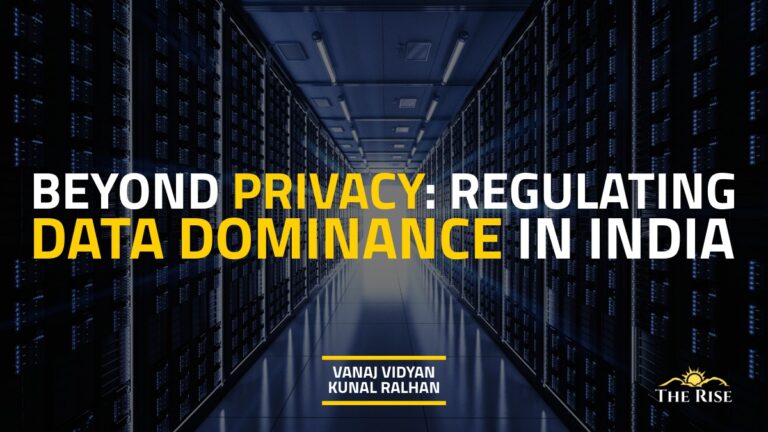
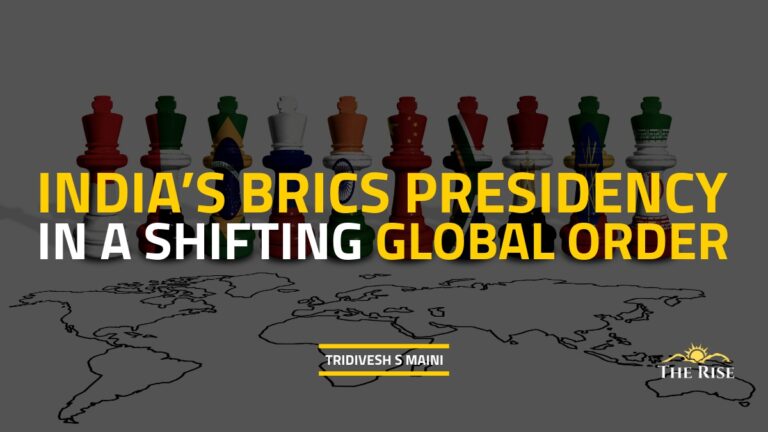


Pingback: Pacifism in Words, Militarism in Actions: The Sounding Brass
Pingback: G20, Dharamshala Declaration, Northeast: Boost to India's Tourism